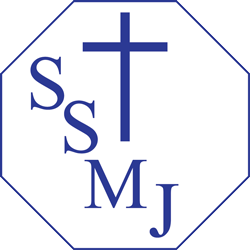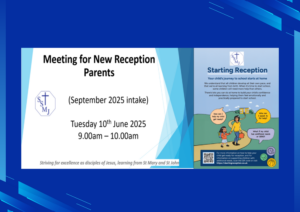Welcome to our Early Years
Meet the Team
Welcome to our Early Years homepage – you can find lots of useful information on your child’s journey here with us at SS Mary and Johns.
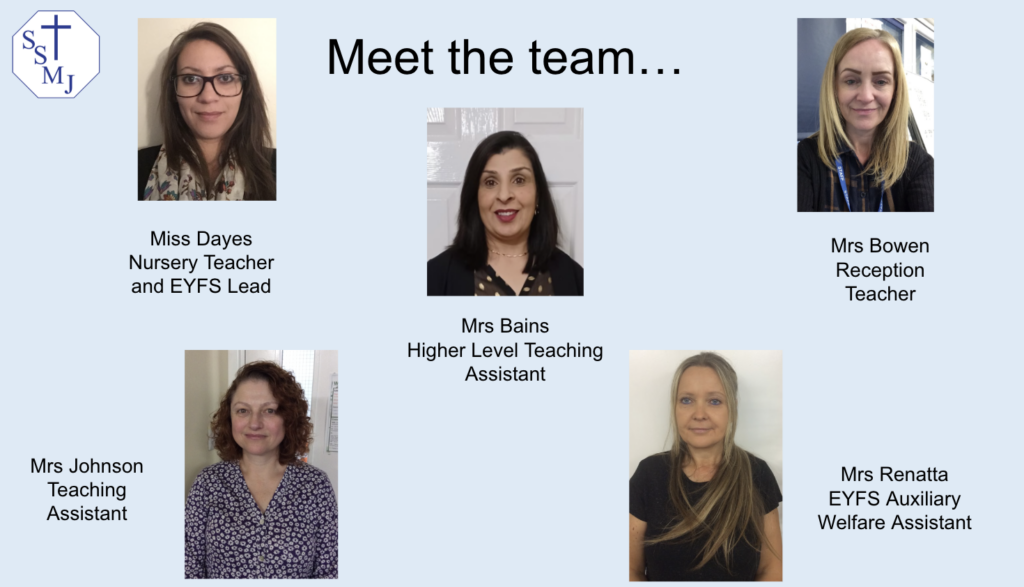
A useful website link: The best start in life parent hub. Use the above link for useful information on giving your child the best start in life. No question, is a silly question! Thank you
Our Vision for the Early Years Foundation Stage
Curriculum
In the Early Years Foundation Stage at SS Mary and Johns, our mission is to provide an enabling environment which promotes the learning and development of every child attending our setting. Our EYFS curriculum is designed to ensure that children develop the knowledge, learning and life-long skills that they need to succeed in life. Our learning includes a balance of discreet, adult-led sessions and carefully planned continuous provision and enhanced provision where children have the opportunity to investigate and apply their learning using both the indoor and outdoor environments. We want our children to become confident, independent learners so it is vital that they feel safe, supported and nurtured at every point of their time with us in EYFS. All staff in our EYFS team have a thorough understanding of the EYFS curriculum and how to support children effectively.
The EYFS includes seven areas of learning and development which is split into three age bands: birth to three years, three to four years (nursery) and four to five years (Reception class.) The 7 areas are split into two categories: the prime areas and the specific areas
Our Nursery and Reception Classes follow the Statutory Framework for the Early Years Foundation Stage.
The prime areas lay the foundations upon which all further learning can develop. The prime areas are also extremely important for ‘igniting children’s curiosity and enthusiasm for learning, forming relationships and thriving’. The three prime areas are:
- Communication and Language (CL)
- Physical Development (PD)
- Personal, Social and Emotional Development (PSED)
The specific areas also support children’s learning and development by strengthening learning and development within the prime areas, hence why the 7 areas are seen as being interconnected. The four specific areas are:
- Literacy (L)
- Maths (M)
- Understanding the World (UW)
- Expressive Arts and Design (EAD)
It is our aim that children will leave the EYFS as resilient, independent and reflective learners. Through a range of experiences, we want children to learn how to work together collectively and become responsible, respectful members of the EYFS community.
Please contact Early Years staff or our school office for further details about our excellent provision across these areas of learning.
Transitions
We know that any change can be challenging for children, especially our youngest learners, so we have carefully planned our approach to transitioning to support them with this.
As our youngest learners start Nursery with us, we believe it is important to ensure they feel safe and secure from the start, so we ask that you the parents join us for a stay and play session initially, to ensure your child can build positive relationships with our staff whilst still feeling comfortable with their main carer present.
We also support our children with the daily transitions from one part of the day to another, using visual timetables and now and next boards.
We begin to prepare our Nursery children for transition into our Reception class from the Autumn term, when they take part in daily mixed group continuous provision sessions. This involves them being in mixed groups with children from the Reception class, then spending time in one of three areas: Reception class, Nursery or outside. The staff rotate around these spaces, enabling children to become familiar with all of the team and every EYFS learning space long before it is time for them to progress to the next year group. We also participate in weekly Music lessons with Mrs Barrett to support the children with more formal carpet time learning.
Where possible, we liaise with other settings when children are moving to or from a different school or nursery, and we ensure we are able to visit the child in that environment, enabling us to gather information and get to know about their likes and interests.
When children transition from Reception to Year 1, we plan sessions for them to meet their new teacher firstly in the Reception class environment, before visiting their new classroom. Staff hold detailed transition meetings, sharing and gathering all of the information needed to support the next stage of their learning journey.
Indoor Learning
Here at SS Mary and Johns we pride ourselves on offering the children the best provision we can in the Early Years, this includes access to both the indoor and outdoor areas throughout the year regardless of the weather. This enables the children to access all 7 areas of our Early Years Curriculum. As every child is unique, we also plan our curriculum around the characteristics of effective learning as this enables our children to become resilient and independent learners and take ownership of their own learning.
Outdoor Learning
We will explore the outdoor area EVERYDAY as part of our curriculum so we encourage you to ensure that your child is sent into school wearing appropriate clothing and footwear suitable to the weather conditions for the day. We would also appreciate it if you could send in a spare change of clothes as sometimes we do get muddy or wet as our curious and active approach enables the children to explore and have fun as they learn.
Enriching the Curriculum
We love to enhance our children’s learning in EYFS by incorporating a range of enriching learning experiences. We have taken part in numerous visits including a trip to the Theatre and Lower Drayton Farm. We have also had hands on experience of hatching eggs and looking after baby ducks and butterflies. We also look forward to our annual Christmas Experience Day where we get to immerse ourselves in the wonderful world of books and meet Santa, last year we had lots of fun reading and experiencing the wonderful world of Stickman.
In EYFS we work closely with all subject leaders to ensure learning is high-quality, broad and balanced. We are fortunate that our subject leaders are experts in their area of learning and they often offer advice and support to encourage the individual strengths of each child. EYFS take part in whole school themed days that link to curriculum areas and also welcome visitors in from the local community to enhance our children’s understanding of the world.
Click on the links below to see Nursery and Reception’s Long Term Plans:
A Day in EYFS
Nursery
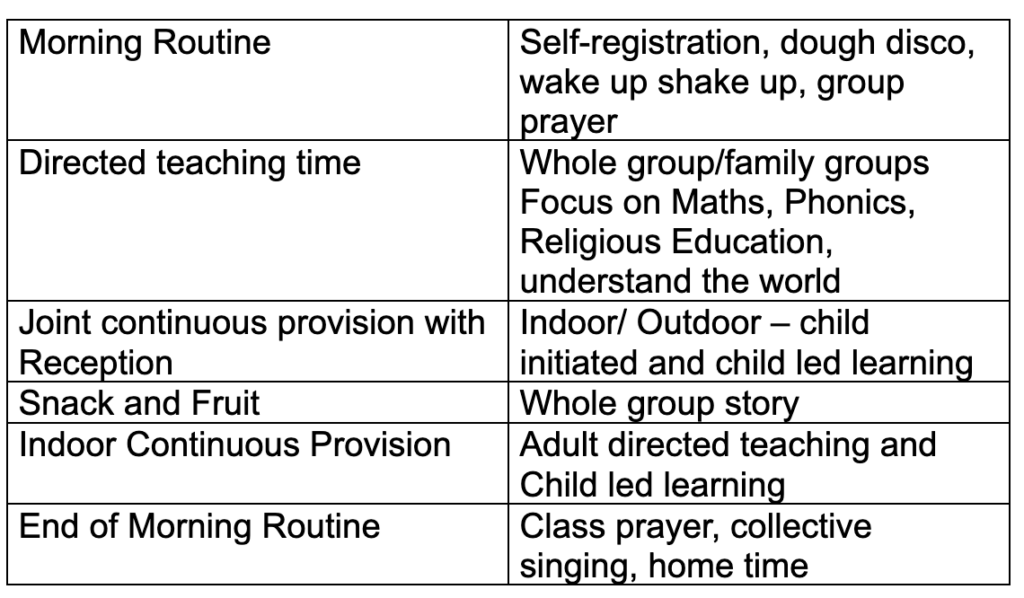
Reception
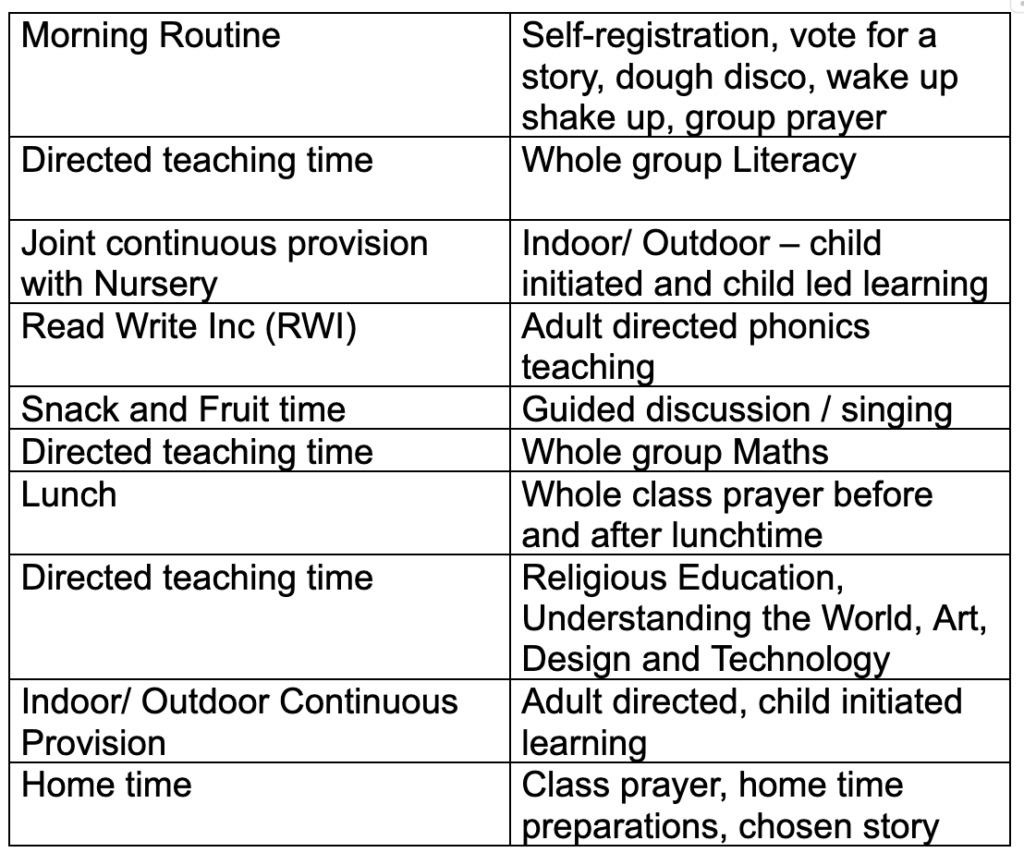
On specific days the children have some hall time for PE and music time with a specialist music teacher. We also hold a dedicated library session once weekly.
Phonics
Maths Workshop
Documents and Policies
- EYFS Core Nursery Rhymes.pdf pdf69.9 KbJan 28th, 2025
- EYFS Core Texts.pdf pdf118.8 KbJan 28th, 2025
- EYFS Curriculum Design 2025 - 2026.pdf pdf249.0 KbSep 8th, 2025
- KS1 Print Letter Formation Alphabet Sheet.pdf pdf56.7 KbJan 28th, 2025
- Number Formation Rhymes.png png328.1 KbJan 28th, 2025
- SSMJ School Prospectus 2025-2026.docx.pdf pdf4.3 MbSep 2nd, 2025
- Starting-Reception.pdf pdf2.5 MbApr 17th, 2025
- Welcome to Nursery Leaflet.pdf pdf606.8 KbSep 9th, 2025
- What does EYFS look like?.pdf pdf179.6 KbJan 28th, 2025
- What to expect in the EYFS - DfE Guide for Parents.pdf pdf6.0 MbJan 28th, 2025
